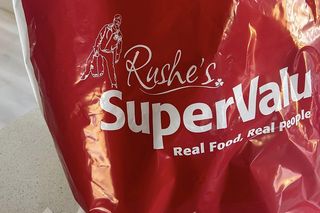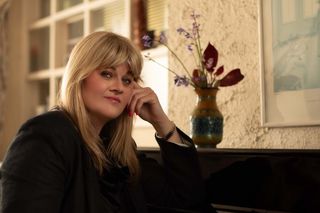Darragh McManus: Vogue Williams, it turns out, is pretty darn good at making pretty darn good television
A review of 'Vogue Williams – Wild Girls'
Vogue Williams. Photo: Kip Carroll.
Vogue Williams became famous for appearing in Fade Street, which at the time (2010) seemed like a belated example of the worst sort of Celtic Tiger folly, idiocy and narcissism.
Now, five years later, it still feels like that – but Williams has gone on to have a pretty interesting TV career.
Admit it: you thought she was a total airhead, didn’t you? You reckoned she’d never amount to anything, and spend the rest of her life being married to Brian McFadden and annoying the bejeesus out of the rest of humanity. You wanted the entire cast of Fade Street, Vogue included, to be ejected into space inside a rocket filled with toxic manure.
You were wrong, though (especially about the toxic manure – come on, that’s a bit over the top). Since Fade Street, Williams has appeared in predictable sleb-centred crapola like Dancing with the Stars and some Bear Grylls thingie. But she’s also made the surprisingly good Vogue Does…series, especially the Straight A’s one.
And now, with Vogue Williams – Wild Girls, she’s moved up another notch. This is more serious, thoughtful, rigorously researched and intelligently handled TV than anything she’s done prior to this. It’s not the most wonderful documentary film in history, but it ain’t half bad – and neither is Williams.
Across three hour-long episodes, she travels the world to meet – as per the PR bumpf – “some of the world’s toughest women…whose lives are unconventional, dangerous and lived on the edge”. Tonight’s first episode, Tough Girls, centres on law-breakers Stateside.
Vogue visits a “boot-camp” style prison in Florida, where young offenders can avoid staggeringly long sentences for six months of brutal discipline, which aims to turn them into decent citizens with soldierly habit and values. She meets reformed gang-bangers in an LA café dedicated to ending the cycle of gang violence. She goes shopping for guns – they’re literally in a large, beautifully lit supermarket of weaponry – with a slightly paranoid suburban lady who likes to shoot.
This is all good, but the film’s strongest, and most affecting, part is the last one. Williams meets convicted murderer Emilia Carr, the youngest woman currently on Death Row (she’s aged 30, but looks a decade younger, which makes it all the more creepy). Carr is likeable, contemplative and sympathetic – yes, I know she’s a convicted killer, but she’s not a monster.
And Williams handles this interview really well: she asks about difficult things straight out, but with a sensitivity and decency that’s often missing in how telly presents issues of crime and punishment. There’s one moment, where they laugh about bad taste in music during their teens, where you really do think, “There but for the grace of God go all of us…”
Yeah, she’s got a SoCoDu drawl and Valley Girl hair. Yeah, she was married to a guy who used to be in Westlife. Yeah, her public persona is as the quintessential actress/presenter/model/whatever. And yeah, she was in Fade Street.
But Vogue Williams, it turns out, is pretty darn good at making pretty darn good television. Who’d have thought that in 2010?
Join the Irish Independent WhatsApp channel
Stay up to date with all the latest news














